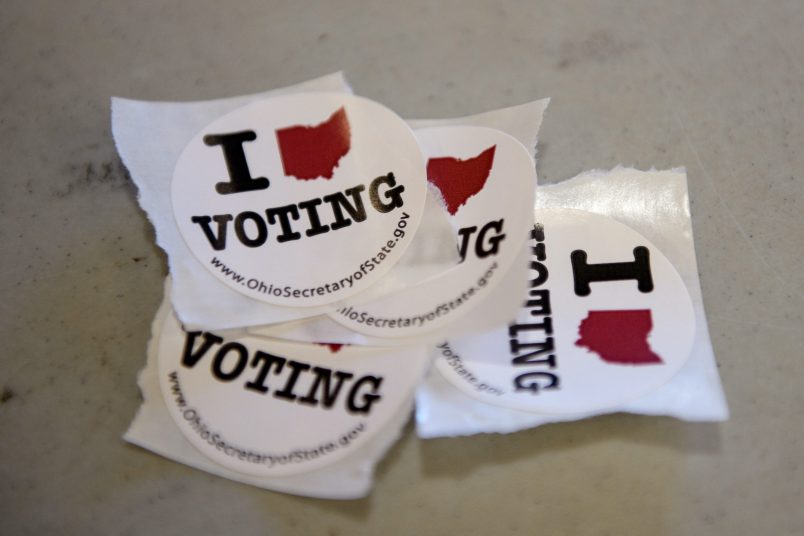I wanted to flag again that the congressional generic ballot continues a small but steady creep in the direction of the Democrats. The shift is basically since the leak and then official release of the Dobbs decision. To be clear, Democrats are still very much the underdogs in the battle for the House, though they’re close to tied in the congressional generic ballot. The two prognostication sites I watch put the Dems’ odds in the 15% or less zone. So, not good! But the movement is in their direction and there’s more than three months to go.
At the same time, conventional wisdom is moving strongly in the Democrats’ direction in the Senate. There have been a lot of signs of this that conventional opinion really missed because they were seeing things so much through the prism of a GOP wave election. One of these now sees a 55% likelihood of Democrats maintaining control of the Senate and the other 50%-50%. These have each moved significantly in the Dems’ direction just over the last week.
This disjuncture is not unprecedented. The House tends to move in great sloshes and waves. The bios of individual candidates aren’t that important because they’re never visible to the public. In statewide Senate races, who the candidate is can make a big difference. We could see a replay of 2010, when Republicans had a huge wave year but managed to squander it in the Senate by choosing lots of really, really bad candidates. We definitely see something similar this year: Vance in Ohio, Walker in Georgia, Oz in Pennsylvania. Each in their own way is a really bad candidate. No one even contests this, I guess aside from their families. The question is whether it’s just such a strong GOP year that it won’t matter. I’m relatively confident — perhaps cautiously optimistic — that Democrats will maintain control of the Senate. Adding two seats is a much bigger challenge. But it’s definitely possible. A couple months ago — even a month ago — a lot of people thought Democrats holding the Senate was a long shot. Now it’s as likely as not.
There are just a lot of holes in the GOP wave model of this election. If you look at the Senate races — which unlike the House races are already getting a lot attention — they’re just not consistent with a GOP wave year, even when you figure in Trump forcing the nomination of a bunch of super bad candidates. The numbers simply don’t line up. Tim Ryan is currently a couple points up on JD Vance. To see that in what is now basically a GOP state simply doesn’t add up. Cheri Beasley is currently running a couple points behind Ted Budd in North Carolina. Is she going to win? Probably not. But in a GOP wave year a Senate race in North Carolina shouldn’t be close to tied.
Small donor numbers also don’t fit. Small donor giving (under $200) to Democrats is swamping numbers for Republicans. Again, that just doesn’t fit with a wave model. Republicans will likely make up a lot of that ground with high dollar donors. But as a sign of intensity and enthusiasm it’s way out of sync with the dominant campaign narrative.
I try to strike a balance in these posts. I don’t want to show you these races through rose colored glasses. Republicans are definitely likely to win the House based on how things stand right now. They certainly could win the Senate. No campaign is ever settled more than three months out. But there are dynamics and data points about this year that make it different. We have a big exogenous shock to the electoral calculus in the form of Dobbs. There are a lot of data points that don’t fully line up with the GOP wave model — donor numbers, polls and more. There’s more than enough chance for Democrats to hold both chambers of Congress, and to go all in on making it happen. Back in the Spring I was sure the Democrats were going to lose the Congress. Now it’s up in the air.






